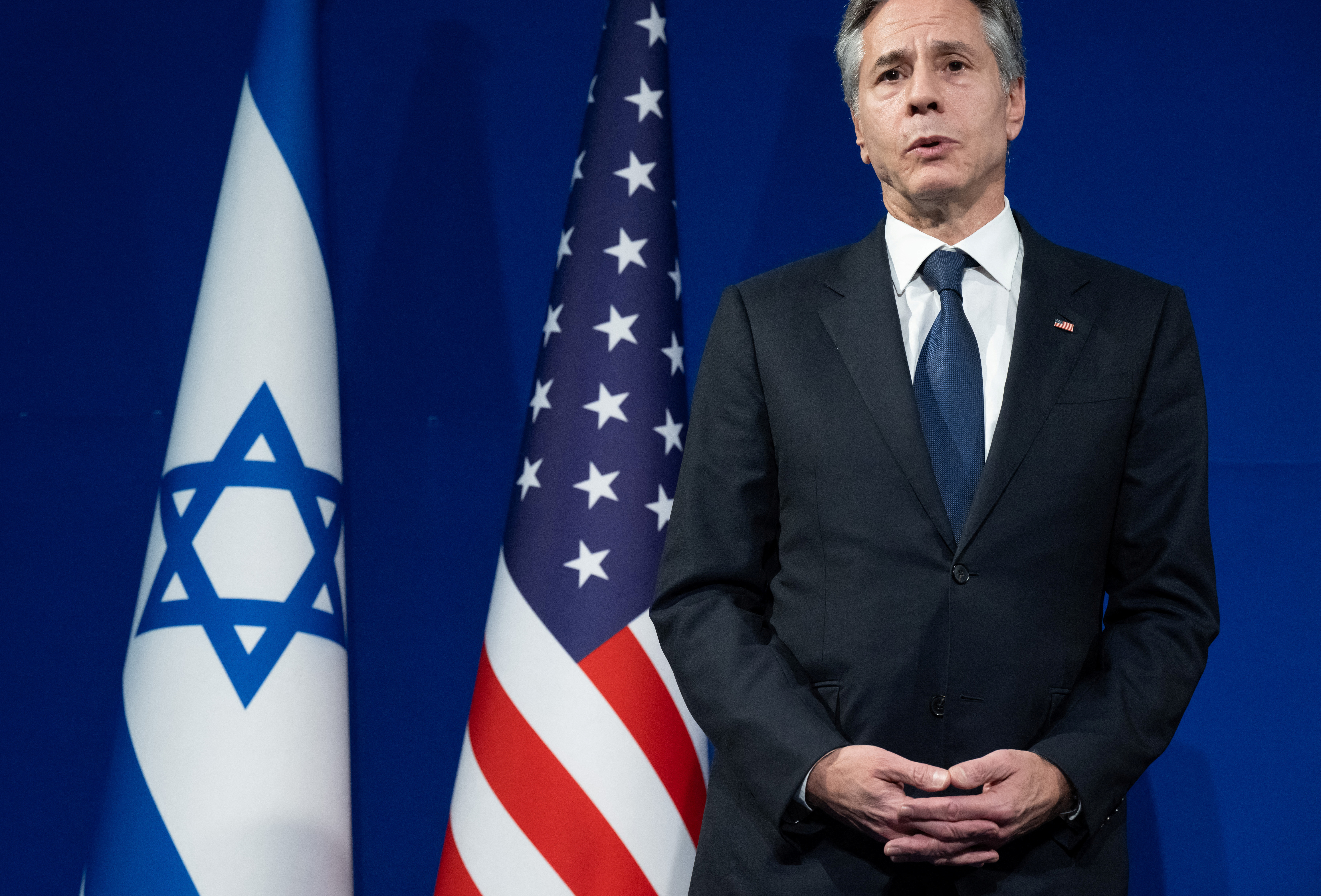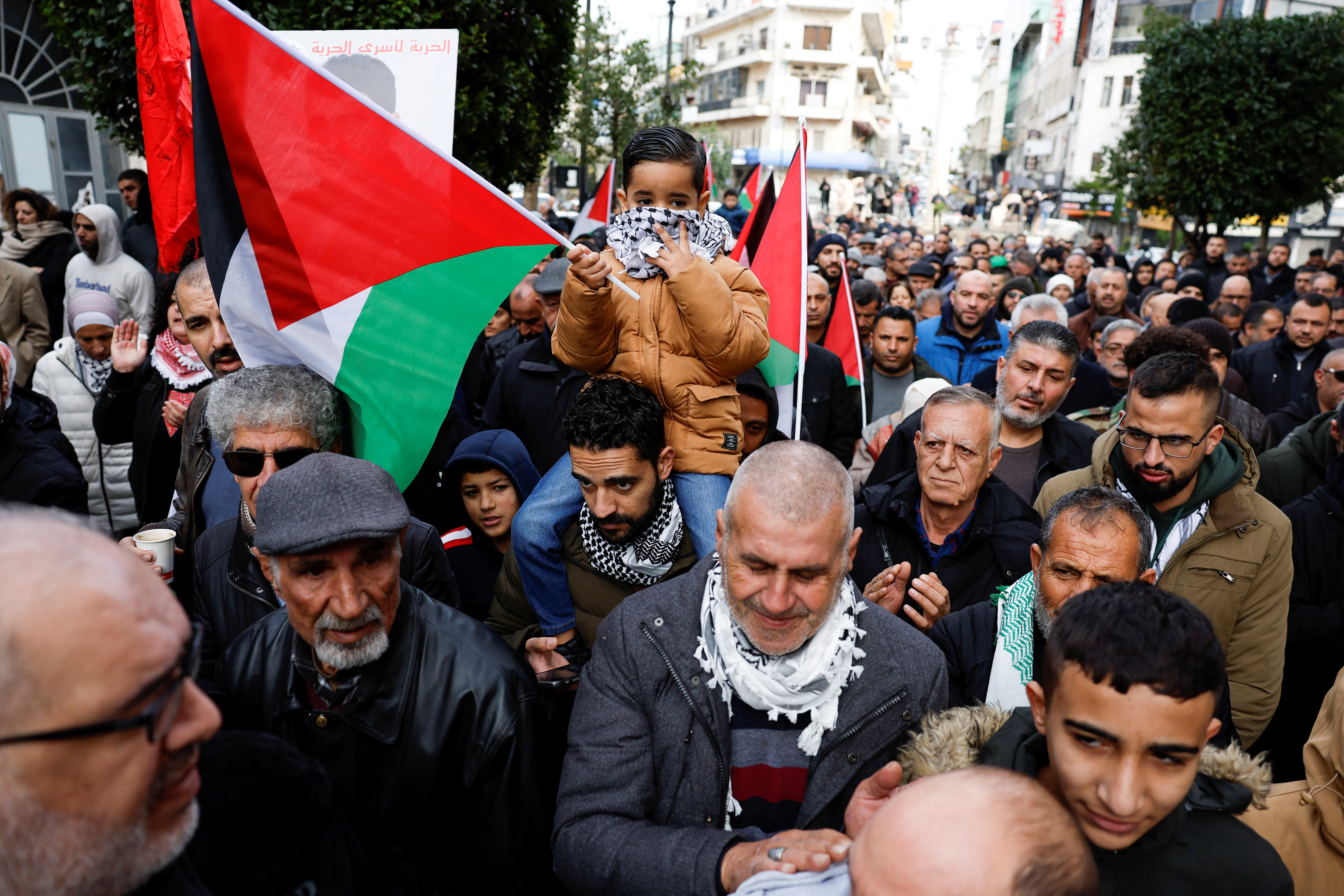
The United States is to engage in a renewed diplomatic push to calm tensions in the Middle East as the region teeters on the brink of a regional conflagration following a suspected Israeli strike on a Hamas leader in Lebanon, twin bombings in Iran and no end in sight to Israel’s war on Gaza.
US Secretary of State Antony Blinken will engage in some shuttle diplomacy while on a weeklong whistlestop tour of several countries that begins on Thursday.
Blinken will visit Israel, the West Bank, Turkey, Greece, Jordan, Qatar, the United Arab Emirates, Saudi Arabia and Egypt, US State Department spokesperson Matthew Miller told reporters.
He will discuss immediate measures to increase humanitarian assistance to the Gaza Strip, while also stressing to Israel that it needs to do more to lower tensions in the occupied West Bank, Miller said.
Blinken will also focus on preventing the conflict from expanding to other countries. “He will discuss specific steps parties can take, including how they can use their influence with others in the region, to avoid escalation,” Miller added.
Ahead of Blinken’s visit, special envoy Amos Hochstein, an experienced hand who has helped broker maritime talks between Israel and Lebanon in the past, is expected to lay the groundwork.
Blinken’s trip, the fourth since Israel’s war on Gaza began on October 7, comes as interlinked conflicts in the region reach boiling point. In recent days, Israel has ramped up its attacks on Gaza, the occupied West Bank, Syria, and on Hezbollah and Hamas in Lebanon, and is suspected of killing top Hamas official Saleh al-Arouri in Beirut on Tuesday.

Yemen’s Iran-aligned Houthi rebels have been disrupting global commerce, targeting vessels linked to Israel in the Red Sea in support of Hamas. Leading a multination maritime coalition, Washington has issued what appeared to be a final warning to the Houthis. Over the weekend, US-led multinational forces sank three rebel ships and killed a number of rebels, leading Iran to deploy a warship to the region.
‘Important time’
On Wednesday, Iran was hit by twin explosions that killed more than 80 people commemorating the death of top Iranian general Qassem Soleimani, who was killed in a US drone strike four years ago. Esmail Qaani, commander of Iran’s Quds Force, blamed the US and Israel for the attack. The US State Department’s Miller rebutted the claims, calling suggestions of US involvement “ridiculous” and adding that he had “no reason to believe that Israel was involved”.
Reporting from occupied East Jerusalem, Al Jazeera’s Laura Khan said that the US “absolutely” wanted to “restore some calm”.
“This comes at a very important time,” she said, adding that Israeli Prime Minister Benjamin Netanyahu “has already said he’s fighting a war on seven fronts”, in Gaza, the occupied West Bank, Lebanon, Syria, Iraq, Yemen and Iran.
Hochstein will be looking specifically at the northern border dispute between Hezbollah and Israel, where there has been crossfire and heightened tensions since the killing of al-Arouri, our correspondent said.

Blinken’s planned visit also comes as Israel faces a high-stakes legal showdown at the UN’s International Court of Justice next week after South Africa filed a case accusing Israel of genocide. The hearing, set for January 11-12, will bring some measure of discomfort to the US, which has lent staunch support for Israel since the war began, fast-tracking $14.3bn in aid in November.
On Tuesday, however, the US State Department distanced itself from recent pronouncements by hardline Israeli ministers Bezalel Smotrich and Itamar Ben-Gvir advocating the displacement of Palestinians as a solution to the crisis. “We have been clear, consistent and unequivocal that Gaza is Palestinian land and will remain Palestinian land, with Hamas no longer in control of its future and with no terror groups able to threaten Israel,” Miller said.
In Washington, US national security spokesperson John Kirby denied that apparent US support for Israel’s extraterritorial killing of Hamas leadership and its deployment of strike groups to the Eastern Mediterranean to challenge Yemen’s Houthi rebels were contributing to the escalation. “I stand by my answer. No,” he said on Wednesday, in response to a question by Al Jazeera correspondent Kimberly Halkett.
Responding to the killing of al-Arouri, Hezbollah leader Sayyed Hassan Nasrallah said the strike was “a major, dangerous crime about which we cannot be silent”. However, in a delicate balancing act, he underlined that he did not fear war with Israel, but stopped short of announcing a large-scale escalation.







